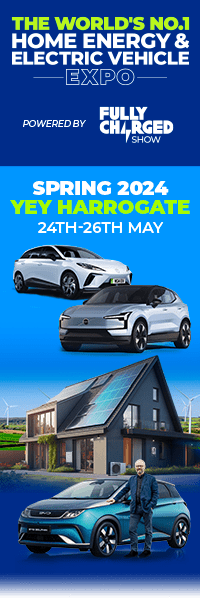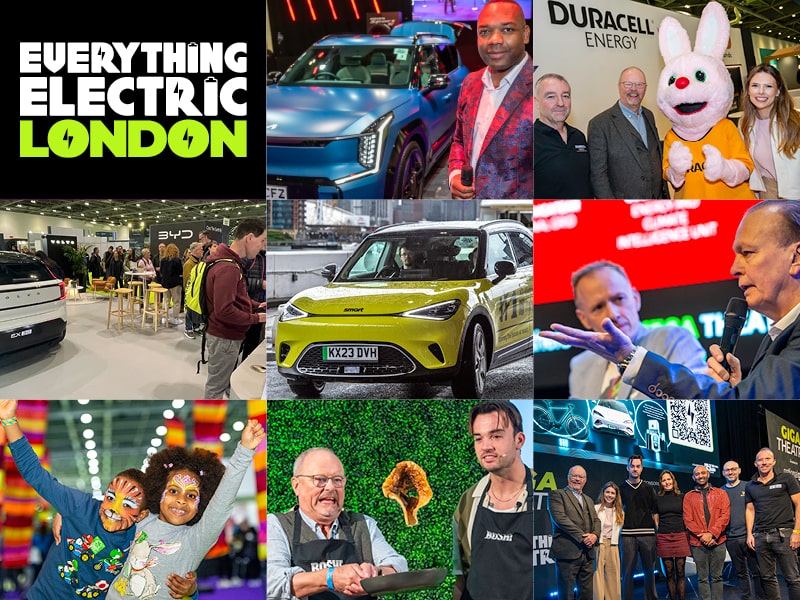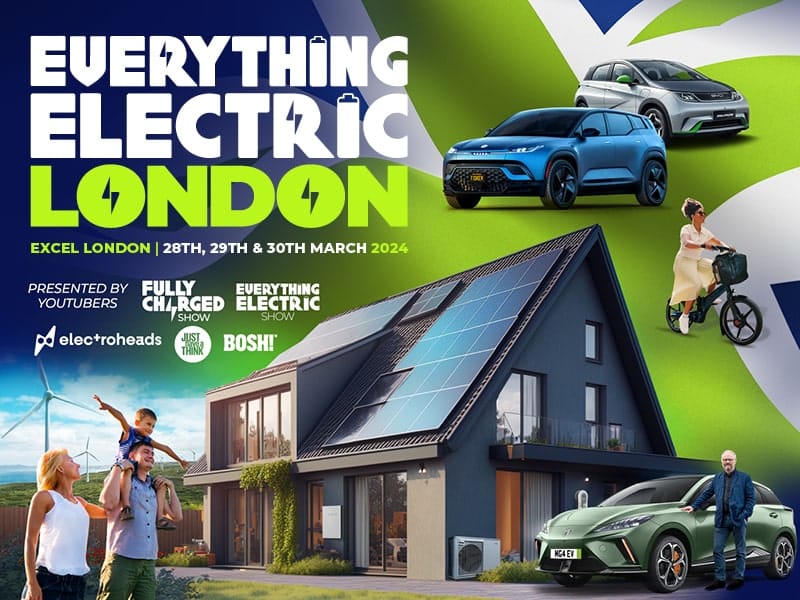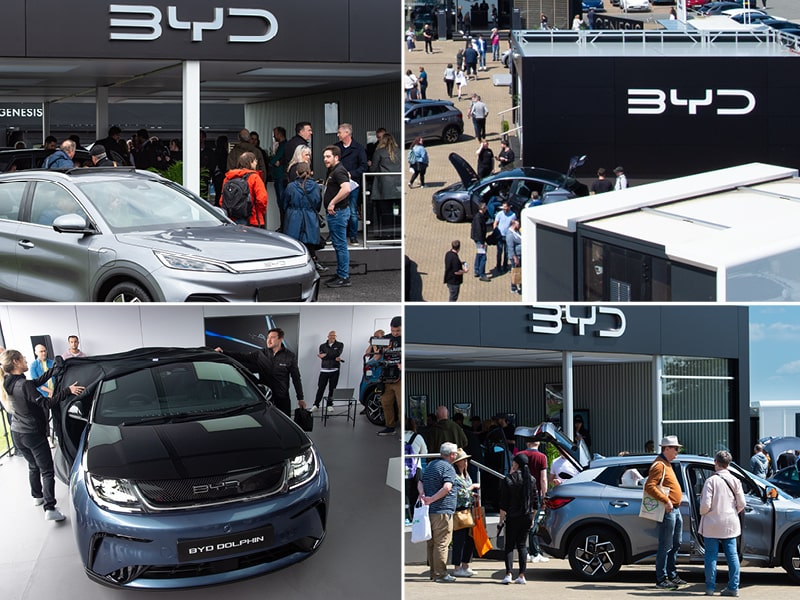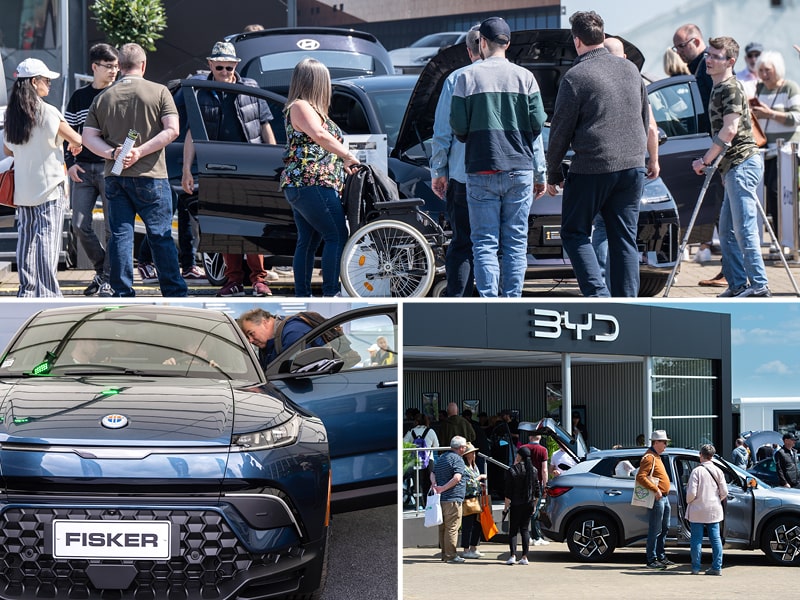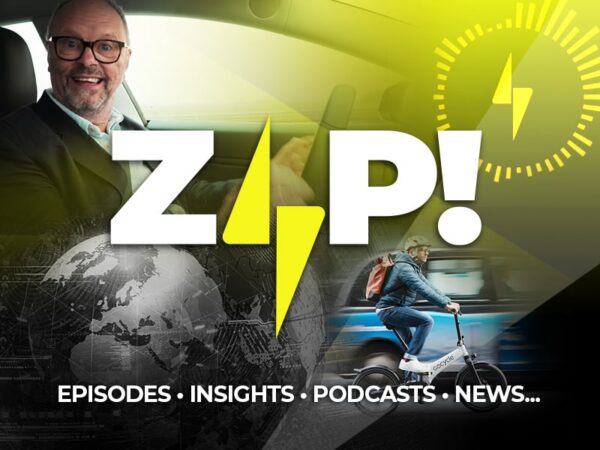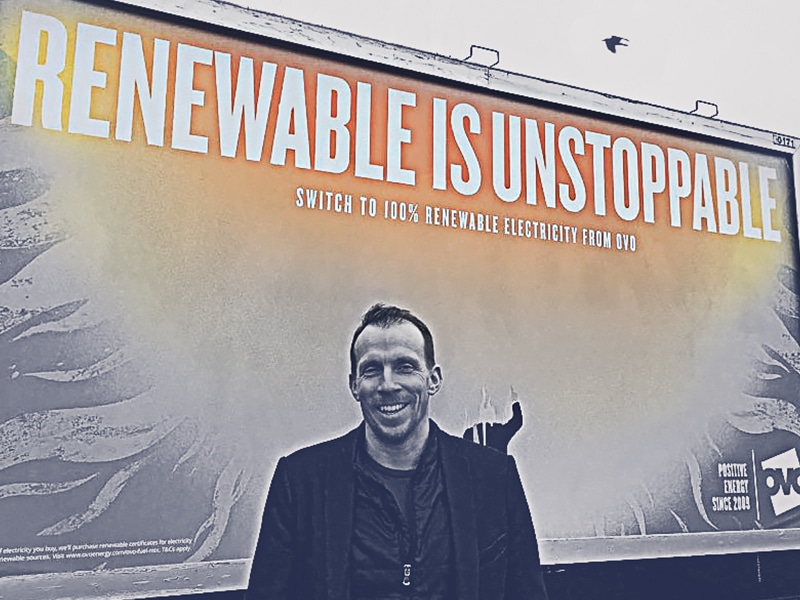
The signs are there - this one succinctly sums up how we feel at Fully Charged. Other clean energy suppliers are available
Those that have fought – often over decades – for a clean energy future, could be forgiven for feeling very badly burnt by Michael Moore’s ‘hatchet job’ of a movie, ‘Planet of the Humans.’
Deliberately styled to evoke memories of the seventies film franchise ‘Planet of the Apes’, it really only shared two things with the films.
The fact that it is a ‘science fiction’ – see the epic takedown from ‘Just Have A Think’ – and that by the end we knew exactly how Charlton Heston felt at the end of the movie: “You maniacs! You blew it up! Oh, damn you! Goddamn you all to hell!”
Meanwhile though, back in the real world, combustion-free technologies like wind, solar and storage, and their zero emission offspring – electric cars, electric bikes and electric buses – are seeing stunning successes the world over.
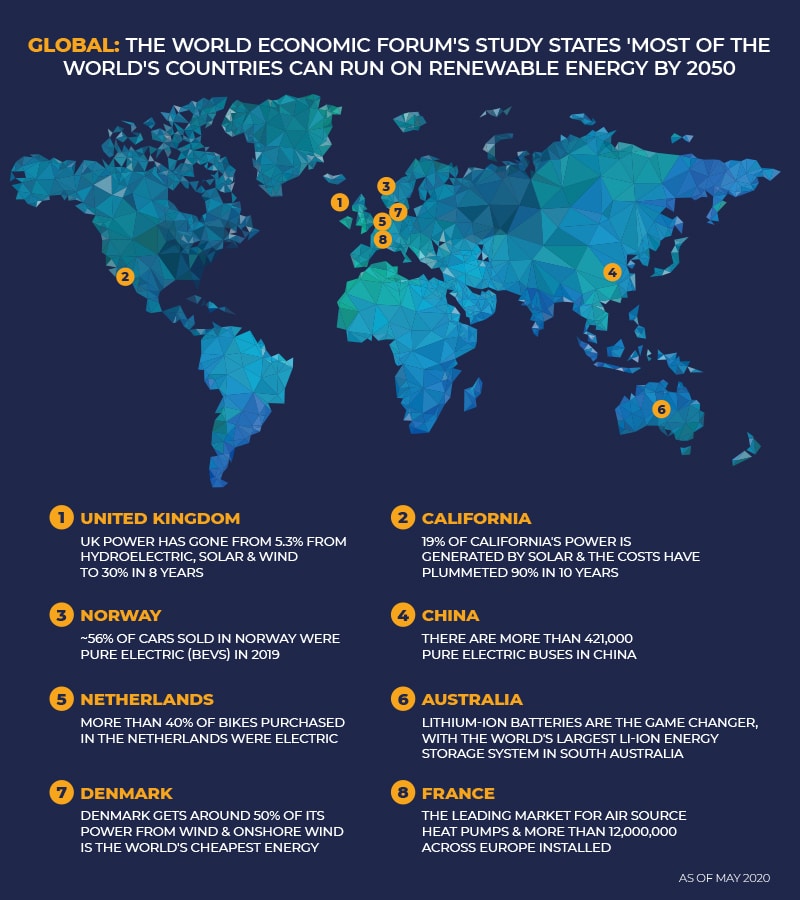
Renewable Energy
Freeing ourselves from fossil fuels isn’t a pipe dream; the likes of Bloomberg New Energy Finance and the World Economic Forum assert that most of the world’s countries can run on renewable energy, with a study from the latter stating that this is possible by 2050.
Power Grids
The UK has gone from 5.3% of power from Hydroelectric, Solar & Wind in 2012, to more than 30% as of 2020, and as that capacity continues to grow, large-scale energy storage will further unlock its latent potential.
Wind
Denmark gets around 50% of its power from Wind, and while both offshore and onshore wind booms worldwide, onshore wind is acknowledged as the cheapest form of power available at around $44/MWh.
Hydropower
The 2nd biggest power source in China with ~17% hydroelectricity has doubled there in the last decade. Meanwhile Norway, with its unique topography, receives almost all of its power from hydroelectric sources.
Solar
19% of all of California’s power is generated by solar and the cost of utility-scale solar has plummeted 90% in 10 years to around $50/MWh, even the UK (not known for its sunshine, or progressive solar policy) gets more than 4% of its power from solar.
Batteries
Lithium-ion has been the prime mover in the last decade, its density has increased and its cost has reduced very significantly and these trajectories continue. Meanwhile other better battery technologies are being developed, and yes batteries can be recycled.
Heat Pumps
Air Source Heat Pumps are far from the only way to offer clean heat, but with more than 12,000,000 installed in Europe, Scandinavia has shown the technology works in colder climes, and with France, Italy and Spain as the biggest markets, the potential is clear.
Electric Cars
~56% of cars sold in Norway were pure electric in 2019, the grid is coping comfortably, and their success is inspiring fast-growth of EV sales across Europe, especially in France, Germany, Netherlands and in the UK.
Electric Bikes
More than 40% of bikes purchased in the Netherlands were electric in 2018, and e-bikes are proven to reduce car usage. From a transport mode perspective, this sector is likely to be the single biggest beneficiary of the Coronavirus pandemic.
Electric Buses
There are more than 421,000 pure electric buses in China, a move that has catapulted China to be the world’s leading battery-maker, and is now inspiring cities in Europe and the US to follow suit.
While the following technologies are at an earlier stage – electric scooters, electric vans/trucks, electric boats, electric trains & even electric planes – progress in all of these areas is rapid, and is accelerating, as investment monies coalesce around electrification.
So the next time someone tells you renewable isn’t doable, you can tell them it’s being done, and what’s more, as these technologies deploy they get cheaper and more efficient too, creating a virtuous circle.
Is it any wonder then that fossil fuel lobbyists pump out disinformation on these technologies, in order to keep pumping out their product?
To ensure that these successes become genuinely global, we need to roll these technologies out at speed all around the world; now, is not the time for division, indecision or self-doubt.
It is a given that we need to consume less, and if COVID_19 doesn’t lead us towards lower consumption, or ‘degrowth’ as it is often termed, then it is difficult to see what will. Fully Charged often talks about fewer or smaller vehicles for this very reason.
It is also a given that it takes energy to manufacture the technologies that Fully Charged focusses on, but we believe that it is eminently possible that most, if not all, of these processes can also be powered by renewable energy, as VW are doing at Zwickau.
Furthermore it’s almost become a truism that the world’s population is spiralling upwards, but some of those that have successfully predicted the future, like Elon Musk, have even speculated that population collapse is in fact a likelier outcome (read “Peoplequake” by Fred Pearce).
There’s no escaping the fact that humanity has created, something of an early-stage dystopia, but the evidence strongly suggests that if we trust in technologies that harness wind and store solar, we can ‘science’ our way out of this.
We believe science fiction can offer optimism and we’d highlight the words of writer William Gibson’s when he said that “the future is here, it’s just not evenly distributed.”
Leading countries, cities and companies are showing that it is possible to #StopBurningStuff, so the only question that remains is ‘what choices we will make as consumers in the coming years to consign combustion to the past?’
DAN CAESAR, MD, Fully Charged
We are often asked, what technologies does Fully Charged focus on to a greater or lesser extent, and which ones does it omit entirely.
Here’s our position on most, almost certainly not all, of the technologies out there; in a fast-changing world, we are committed to being open-minded, so if we are missing something, email us via dan@fullycharged.show.
Focus technologies
Hydropower – here’s an episode entitled The Electric Mountain
Solar – there are lots of episodes on solar in the Fully Charged archive, but we will be looking to bring the story up to date soon with the progress being made by companies like Oxford PV
Wind – here’s an episode entitled More Massive Wind
Energy Storage – here’s an episode entitled WMG Future Batteries
Tidal & Wave – here’s an episode entitled EMEC Tidal Power
Geothermal – we are looking to tackle this topic with Dandelion Energy later this year
Heat Pumps – we want to get into the subject of heat in a big way this year, with Air Source and Ground Source Heat Pumps
Other Heat Electrification – what has been framed as ‘Boilers vs Heat Pumps’, we believe will actually be ‘Gas vs Electric’, and there is an array of other electrification of heat technologies we want to talk about
Electric Vehicles of all shapes & sizes – we cover battery electric vehicles, including scooters, bikes, motorbikes, cars, trucks, vans, buses, boats, trains and even planes, as well as fuel cell electric vehicles powered by renewable hydrogen
Energy Efficiency – often termed as the 5th fuel, we will be tackling the oft-overlooked subject of energy efficiency and reducing our consumption in our forthcoming ‘Maddie’s Electric Home’ series
Decarbonisation – we also like to produce thought-provoking episodes on decarbonisation, such as showing how what we eat (meatless products, food miles) and how we live (working from home, reduced consumption) can have a positive impact.
Nuclear – it’s the power source that provokes the strongest reaction, but it is lower carbon than fossil fuels.
As Michael Liebreich asserts keeping the current fleet of power stations in operation, but not committing to more nuclear at huge expense, while keeping an open mind about better, cheaper nuclear technologies is in our opinion the sensible position to take.
Renewable Hydrogen – this is where Hydrogen comes into its own, but it will take time to deploy sufficient renewable capacity and to scale this sector meaningfully.
We omit those that emit
Coal – as the UK has shown it’s possible to wean yourself off Coal, and relatively quickly too.
Gas – while billed as a ‘bridge fuel’, we will need to get over gas; in this we include Hydrogen from ‘Natural’ Gas.
Oil – evidently we are not that keen, it might have fuelled human progress for a century, but at what cost?
Wood – whether it be in wood-burning stoves, wood fires, or the burning of ‘sustainable’ biomass, it all emits.
Other recommended reading
- The 7 reasons why the future is electric
- Clean Disruption of Energy & Transport
- Fully Charged Guide to Clean Energy & Electric Vehicles
Article links for verification purposes in order
- youtu.be/ZmNjLHRAP2U
- www.weforum.org/agenda/2017/09/countries-100-renewable-energy-by-2050
- www.mygridgb.co.uk/historicaldata
- en.wikipedia.org/wiki/Wind_power_in_Denmark
- reneweconomy.com.au/solar-wind-and-battery-storage-now-cheapest-energy-options-just-about-everywhere-95748
- en.wikipedia.org/wiki/Hydroelectricity_in_China
- en.wikipedia.org/wiki/Energy_in_California
- reneweconomy.com.au/solar-wind-and-battery-storage-now-cheapest-energy-options-just-about-everywhere-95748
- about.bnef.com/blog/behind-scenes-take-lithium-ion-battery-prices
- youtu.be/Bpe8HalVXFU
- www.ehpa.org/market-data
- www.automotiveworld.com/articles/electric-vehicle-sales-a-global-snapshot-in-uncertain-times
- www.schmidtmatthias.de/post/march-2020-european-electric-car-market-update
- www.theguardian.com/world/2019/mar/01/bike-country-n0-1-dutch-electric-record-numbers-e-bikes-netherlands
- www.bloomberg.com/news/articles/2019-05-15/in-shift-to-electric-bus-it-s-china-ahead-of-u-s-421-000-to-300
- www.drivingelectric.com/volkswagen/1271/volkswagen-electric-car-factory-transformation-zwickau
- www.amazon.co.uk/Peoplequake-Migration-Ageing-Nations-Population/dp/190581139X
- about.bnef.com/blog/liebreich-need-talk-nuclear-power
